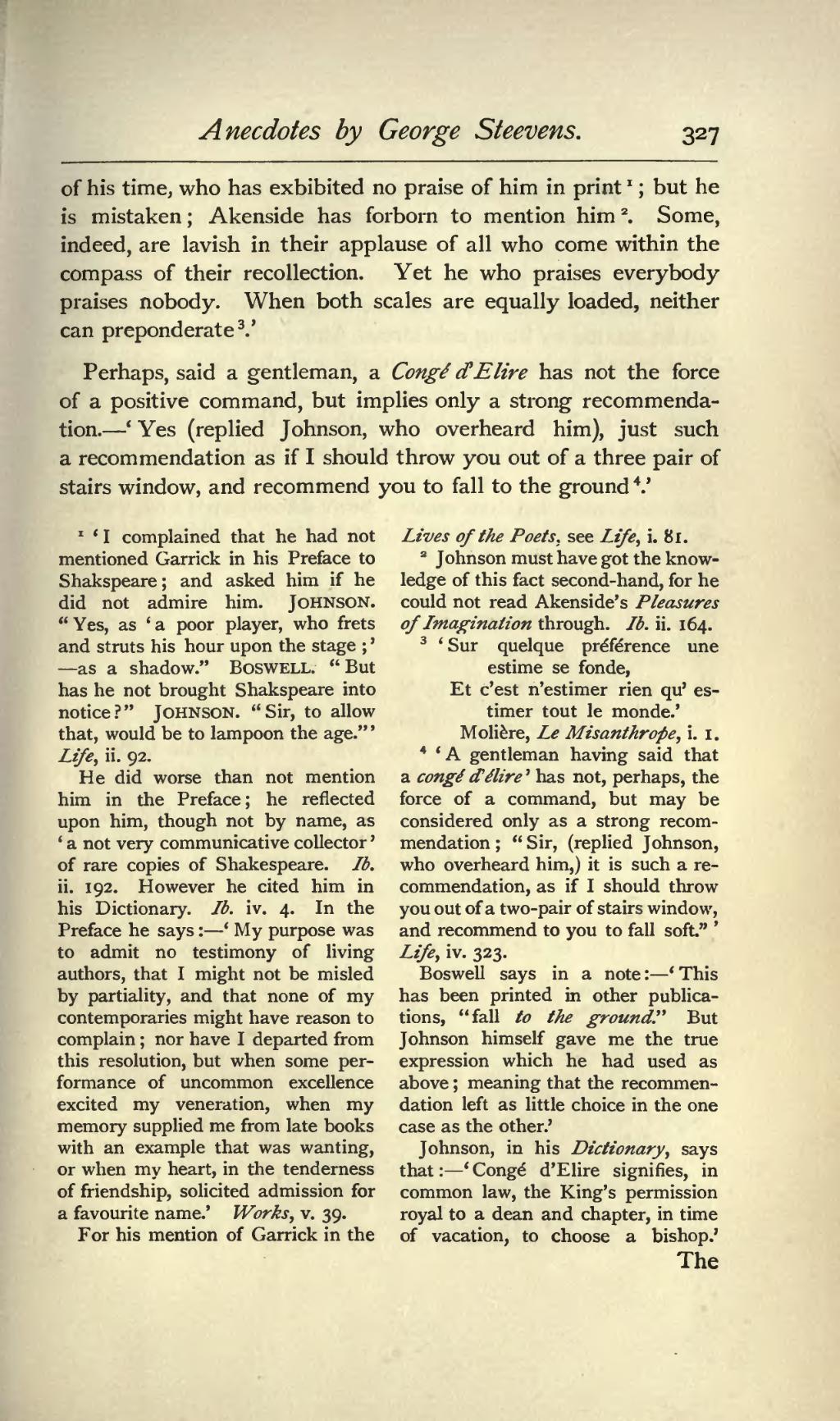Anecdotes by George Steevens.
��of his time, who has exhibited no praise of him in print x ; but he is mistaken ; Akenside has forborn to mention him 2 . Some, indeed, are lavish in their applause of all who come within the compass of their recollection. Yet he who praises everybody praises nobody. When both scales are equally loaded, neither can preponderate 3 .'
Perhaps, said a gentleman, a CongJ (PElire has not the force of a positive command, but implies only a strong recommenda tion. ' Yes (replied Johnson, who overheard him), just such a recommendation as if I should throw you out of a three pair of stairs window, and recommend you to fall to the ground V
��1 ' I complained that he had not mentioned Garrick in his Preface to Shakspeare; and asked him if he did not admire him. JOHNSON. "Yes, as 'a poor player, who frets and struts his hour upon the stage ; ' as a shadow." BOSWELL. "But has he not brought Shakspeare into notice?" JOHNSON. "Sir, to allow that, would be to lampoon the age.'" Life, ii. 92.
He did worse than not mention him in the Preface; he reflected upon him, though not by name, as ' a not very communicative collector ' of rare copies of Shakespeare. Id. ii. 192. However he cited him in his Dictionary. Ib. iv. 4. In the Preface he says : ' My purpose was to admit no testimony of living authors, that I might not be misled by partiality, and that none of my contemporaries might have reason to complain ; nor have I departed from this resolution, but when some per formance of uncommon excellence excited my veneration, when my memory supplied me from late books with an example that was wanting, or when my heart, in the tenderness of friendship, solicited admission for a favourite name.' Works, v. 39.
For his mention of Garrick in the
��Lives of the Poets, see Life, i. 8l.
2 Johnson must have got the know ledge of this fact second-hand, for he could not read Akenside' s Pleasures of Imagination through. Ib. ii. 164.
3 'Sur quelque pre'fe'rence une
estime se fonde, Et c'est n'estimer rien qu' es-
timer tout le monde.' Moliere, Le Misanthrope, i. I.
4 * A gentleman having said that a conge" oTdire ' has not, perhaps, the force of a command, but may be considered only as a strong recom mendation ; " Sir, (replied Johnson, who overheard him,) it is such a re commendation, as if I should throw you out of a two-pair of stairs window, and recommend to you to fall soft." ' Life, iv. 323.
Boswell says in a note: 'This has been printed in other publica tions, "fall to the ground" But Johnson himself gave me the true expression which he had used as above ; meaning that the recommen dation left as little choice in the one case as the other.'
Johnson, in his Dictionary, says that: 'Conge* d'Elire signifies, in common law, the King's permission royal to a dean and chapter, in time of vacation, to choose a bishop.'
The
�� �
